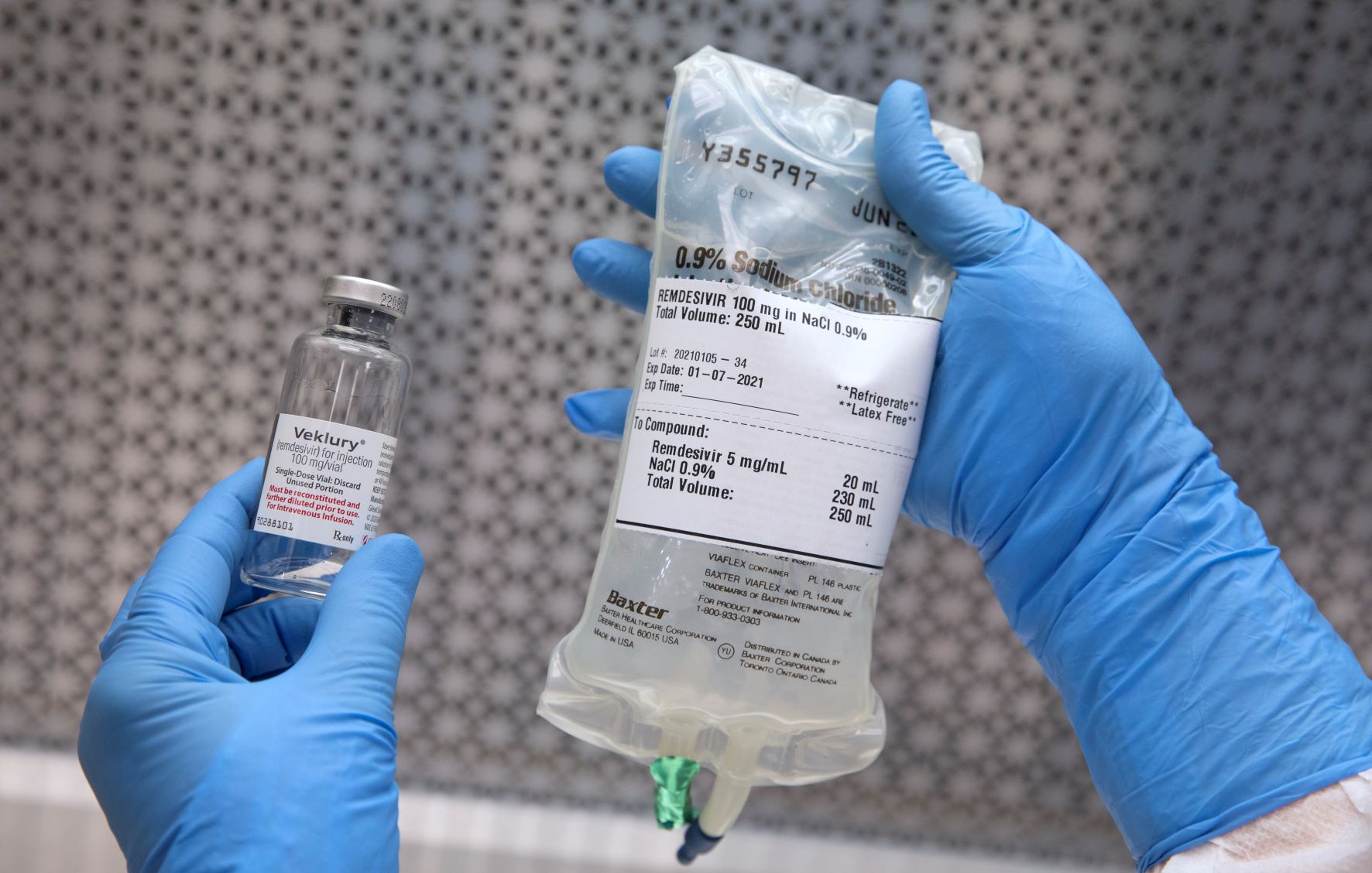Unsung heroes: Core Facilities and Research Resources key to COVID-19 research at College of Medicine

Penn State College of Medicine faculty continue to perform leading-edge COVID-19 studies, and one reason why is the College of Medicine Core Facilities and Research Resources team.
Researchers are investigating COVID treatments, taking a closer look at antibodies related to the disease and working on medical sample processes, all to help patients during the global pandemic. The Core Facilities team is providing key assistance with specialized instruments and analytical services for conducting basic, clinical and translational research.
The College of Medicine facilities are available to all Penn State faculty as well as to researchers outside of the university.
“The Core Facilities are important because they provide one place where researchers can come for equipment and people who can help them interpret data correctly,” said Bruce Stanley, the Core Facilities’ scientific programs director. “As research has gotten more dependent on high-end technologies, researchers really need the tools provided by Core Facilities.”
Individual labs can’t afford the type of equipment found at Core Facilities or the needed expertise, Stanley added. The importance of these resources was abundantly apparent as College of Medicine researchers tackled different aspects of COVID-19.
Moving COVID-19 research forward
Dr. Neil Christensen has spent much of his career studying viruses, in particular the human papillomavirus. Christensen is a professor of Pathology and Laboratory Medicine and Microbiology and Immunology and is part of the Cancer Institute.
Last year when the pandemic hit, he worked with colleagues making antibodies to neutralize variants of the coronavirus.
“The quickness of the research we are able to do because of Core Facilities has been critical,” said Christensen. “The speed and depth of our research is important because of the deadliness of this virus.”
Dr. Catharine Paules, assistant professor of the Department of Medicine’s Division of Infectious Diseases, has been a site principal investigator for an international set of National Institutes of Health (NIH) sponsored clinical trials called the Adaptive COVID-19 Treatment Trials. She has investigated the effectiveness of various COVID-19 treatments, such as Remdesivir and Baricitinib. Her team used the Clinical Specimens Processing Core for their research.
Because of the large number of samples that need to be collected and processed for future research, Paules said, the team’s research could not have been completed without the Core Facilities.
“We have really had a good experience with it,” she said, adding that she is now involved in another NIH-sponsored trial related to a treatment for COVID-19 and using Core Facilities for that as well.
Count on the Core Facilities
Study teams pay for Core Facilities’ services with a fee-for-services model, with fees recalculated annually to cover only the actual costs of providing the services, minus institutional support. The multiple services and instruments are used for a wide variety of research needs, from high resolution imaging studies to identification of biomarkers changing in disease states, to drug development and pharmacokinetics, and more.
Nearly every department at the College of Medicine has used the equipment and services, Stanley said, adding that researchers have counted on Core Facilities to complete more than 100 articles published last year in biomedical journals.
Stanley also said creation of the initial Core Facilities at the College of Medicine was among the first examples of creation of such shared resources in the country, and that they will continue to be critical for both COVID-19-related research and other important research areas.
Christensen agrees.
“With the Core Facilities technology and the skills of our researchers, that is a very powerful combination,” he said.
Learn more about the Core Facilities during the Fourth Annual Research Cores Symposium on Jan. 19 and Jan. 31, 2022.
Penn State faculty and outside users, including industry and other research institutions, are invited to learn about the cores and how the services and facilities may be used for their own research.
To showcase these facilities, the Fourth Annual Penn State College of Medicine Research Cores Symposium will feature lightning talks from researchers explaining how the various instruments and services of each core are being used for rapid progress in their projects. This year’s event will be spread across two separate days and completely virtual.
Learn more and register for the Cores Symposium
If you're having trouble accessing this content, or would like it in another format, please email Penn State Health Marketing & Communications.
